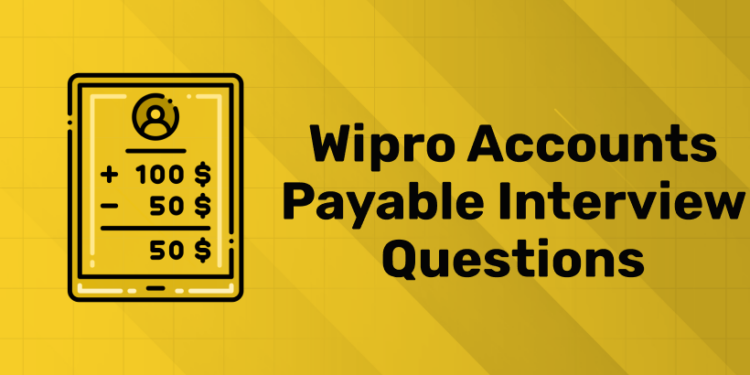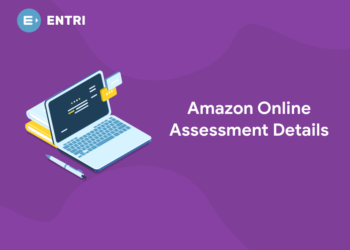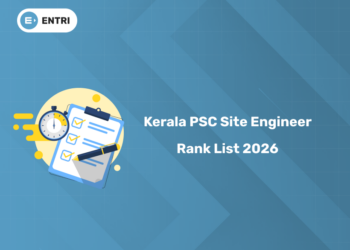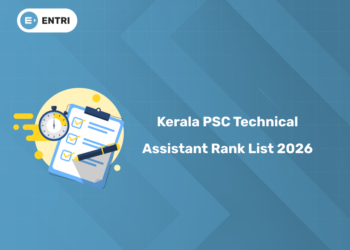Table of Contents
Introduction
Learning about accounts can be fascinating, but when it comes to talking about accounts payable, it can be challenging. To help you prepare for your interview, we have compiled a list of the most frequently asked interview questions and answers with the 60 most common accounts payable.
By going through these interview questions, you can boost your confidence and increase your chances of performing well in the interview.
Accounting is a lucrative field, and successful interviews can open up a lot of opportunities for you. Familiarizing yourself with the potential questions an employer may ask will allow you to prepare and answer with confidence. In this article, we’ll explore 60 accounts payable interview questions with sample answers that will help you land your dream job!
Take Your Career to New Heights with Our Professional Accounting Course! Get a free Demo Here!
Accounts Payable Process Flow: A Comprehensive Guide
1: Accounting provides information on
Understanding the accounts payable process is crucial for anyone preparing for roles in finance and accounting, especially if you want to excel in interviews or improve operational efficiency in a business. This process involves managing and settling obligations to suppliers and vendors for goods and services purchased on credit, ensuring accurate recording, timely payments, and strong financial control. Here’s an expanded, detailed breakdown of the accounts payable process flow to provide you with a full-length, informative view:
1. Receipt of Vendor Invoice
-
The process begins when the accounts payable (AP) department receives an invoice from a supplier or vendor.
-
Invoices can arrive via email, physical mail, or electronic data interchange (EDI).
-
Tip: Always verify the legitimacy of the invoice by checking supplier details and ensuring it matches an existing business relationship.
2. Invoice Verification and Validation
-
The AP team verifies the invoice against purchase orders (PO) and goods received notes (GRN).
-
This verification step confirms that the quantity, price, and terms on the invoice match the ordered goods or services.
-
This is crucial to prevent payment errors or fraud.
-
Meaning: This step is often part of the “three-way matching” process involving the purchase order, goods receipt, and invoice.
3. Purchase Order and Goods Receipt Matching (3-Way Matching)
-
Three documents are compared:
-
Purchase Order: Authorizes procurement of goods/services.
-
Goods Receipt Note: Confirms physical receipt of goods.
-
Invoice: Billing request from supplier.
-
-
AP checks for discrepancies such as quantity mismatches or pricing errors.
-
Any mismatch triggers a resolution workflow involving procurement or the vendor.
-
Tip: Understanding three-way matching is key for interview success and preventing duplicate or fraudulent payments.
4. Invoice Approval
-
Once verification is complete, the invoice is routed for approval according to company policy.
-
Approval may require sign-offs from department heads or financial managers.
-
This ensures budget compliance and internal controls.
-
Larger or non-routine invoices might require additional scrutiny or multi-level approvals.
5. Invoice Recording in Accounting System
-
Approved invoices are entered into the accounting system (e.g., ERP, Tally, SAP).
-
Invoices are coded with the correct general ledger (GL) accounts, cost centers, and payment terms.
-
This step ensures accurate tracking in financial statements.
-
Tip: Knowledge of GL coding and accounting principles is essential for accuracy.
Placement Oriented PWC Business Accounting Course
PWC Certified Business Accounting Course by Entri App: Master in-demand skills, ace interviews, and secure top-tier jobs.
Join Now!6. Payment Scheduling
-
Based on invoice terms, payment due dates are scheduled.
-
AP monitors upcoming payments to maintain good vendor relationships and avoid late fees.
-
Businesses may prioritize payments to obtain early payment discounts.
-
Some firms use automated payment systems for efficiency and to reduce manual errors.
7. Payment Processing
-
Payments are made via checks, electronic transfers (NEFT, RTGS), or online payment platforms.
-
AP confirms payment amounts precisely match invoiced amounts.
-
Controls like segregation of duties help prevent fraud at this stage.
8. Payment Reconciliation and Recording
-
Once payment is made, the transaction is reconciled with bank statements.
-
This confirms funds have been transferred and updates the company’s cash flow records.
-
Reconciliation helps detect discrepancies or unauthorized transactions.
-
Meaning: Reconciliation is essential to ensuring the business’s financial health and audit readiness.
9. Record Retention and Reporting
-
All payment documents, invoices, and approvals are filed systematically.
-
Records must comply with regulatory and internal audit standards.
-
AP generates reports to monitor payable aging, cash flow projections, and vendor payment performance.
10. Continuous Monitoring and Error Resolution
-
AP continuously reviews outstanding payables to manage working capital.
-
Any disputes or payment errors are promptly investigated and corrected.
-
Advanced systems often include alerts for duplicate payments or suspicious activity.
Wipro Accounts Payable Interview Questions
Below is a list of the most frequently asked commitment interview questions and the best possible answers.
1. What are liabilities?
Answer: To these accounts payable interview questions, you could answer that accounts payable means an amount that should be paid as a liability. It is paid to vendors for goods and services that were purchased on credit in the past. The liabilities will be recorded in the balance sheet of the relevant financial year, which starts from April 1 of this year to March 31 of the following year.
2. When is the amount due paid?
Answer: The amount due will be settled in the next month or next year and the amount of the bill due will be entered in the balance sheet of that financial year.
3. What is the full form of WCC?
Answer: WCC in its expanded form is winter compensation from contributions.
4. What is the difference between a liability and a receivable?
Answer: This is a frequently asked Accounts Payable interview question, you can answer by saying; that the accounting object of the liability is considered a loss/liability to the firm because it is a payment that the firm must make for goods or services received in the past on credit.
A receivable means an amount that a business has given someone on credit, while the income has been given to us now (in the future). Liabilities are on the asset side of the balance sheet and liabilities are seen on the liability side of the balance sheet.
5. Who is the sender and what is his relationship to the recipient?
Answer: The sender is the owner of the goods and the one who delivers the goods to the consignee is the one who receives the goods and is not the owner but the one who owns the goods.
6. What are the seller’s total costs from purchase to product delivery?
Answer: The costs borne by the seller from the purchase of the product to the delivery of the product are: advertising costs, storage costs, maintenance costs and shipping costs. All these costs are covered by the seller of the product.
7. What are the different types of accounting?
Answer: The types of accounting I know are:
- Administrative accounting
- Tax accounting
- Managerial accounting
- Cost accounting
- Financial accounting
These are the basic accountings that are done in our daily life.
8. What is an invoice and why is it important to have an invoice number?
Answer: An invoice is a document sent by a seller to a buyer that states the quantity and cost of products or services provided. The invoice states how much the buyer must pay the seller based on the seller’s payment terms. An invoice is a statement that contains the following details:
- Invoice date
- Invoice number provided
- Name and address of the person issuing the invoice (seller)
- Name and address of the person requesting the invoice (buyer)
- Details of all goods and services affected
- Quantity of goods and services
- Quantity and quality of goods and services
- Other specifications
9. What is the process for commitments?
Answer: Accounts payable are responsible for the goods and services provided by the company’s suppliers and vendors. They process incoming bills and invoices; however, they also have additional features depending on the size and nature of the business.
10. What is the work of accounts receivable?
Answer: Accounts receivable captures the entire incoming amount that buyers give to a business in exchange for goods and services received on credit.
11. Who is the processor for the account?
Answer: A Company Accounts Payable Processor is someone who reports to the Accounts Payable Manager and is responsible for conducting a fast and efficient review and refund application process.
12. What kind of work does a liability processor do?
Answer: An accounts payable processor provides payments to all third parties and employees, schedules and prepares checks on behalf of the business.
13. How can a person manage the billing process?
Answer: This is an important account payable interview question, to manage the account payable process a person must follow the steps below:
- The person should centralize the invoice payment
- They should track every payment due
- Information regarding the authorized payment should be known.
14. What is meant by PO invoice?
Answer: A PO invoice is issued when the purchase requisition process is in progress and the purchase order is sent to the supplier.
15. What does a Non-PO invoice mean?
Answer: Non – PO invoice is indicated in the case of purchases made outside the process of regulated purchases, Non – PO is also called expense invoice.
16. What is 3-way matching for commitments?
Answer: This is a frequently asked Accounts Payable interview question that you could answer by saying; that comparing a purchase order is called a three-way order. In a three-way order, the goods receipt and the supplier’s invoice are compared to know whether the receipt is to be paid in part or the whole amount is to be paid at once.
17. What does P2P cycle mean?
Answer: P2P in its extended form can be explained as buy to pay or procure to pay. It is the process of purchasing, receiving, paying and accounting for goods and services. It covers the entire process from order to payment.
18. How can you explain the processing of accounts payable invoices?
Answer: For this payable interview question you can say; that vendors send invoices directly to accounts payable. After presenting the accounts payable, the AP should match the invoice with the open and post purchase order.
19. What is the full form of GRN?
Answer: The full form of GRN is called Goods Received Note.
20. What is the GL code paid for?
Answer: GL Code stands for General Manager Code that provides a general overview of organizational transactions.
21. What work does an Accounts Payable Specialist do?
Answer: The Accounts Payable Specialist ensures that the company’s bills and invoices are paid correctly and that there is no fraud.
22. What is the small difference between Accounts Payable and Accounts Payable Specialists?
Answer: Liabilities are those that carry out all the basic transactions that were due by the firm as credit. Accounts Payable Specialist reviews all financial records.
23. What skills should Accounts Payable Specialists have?
Answer: You could answer this commitment interview question; Accounts Payable Specialist Skills:
- Organization, attention to detail
- Providing accuracy
- Loyalty to the company
- Intimacy
24. What are the qualifications of an Accounts Payable Specialist?
Answer:
| Qualifications | Description |
| Education | High school diploma or equivalent; associate’s or bachelor’s degree in accounting, finance or related field preferred. |
| Experience | 1-3 years of previous experience in accounts payable or similar finance position. |
| Knowledge of Accounting Principles | Understanding of basic accounting principles including debits and credits, accrual accounting and financial statement analysis. |
| Proficiency with Accounting Software | Experience using accounting software such as QuickBooks, SAP, Oracle, etc. as well as knowledge of Microsoft Excel for data entry and analysis. |
| Attention to Detail | Ability to maintain accuracy in processing payments and financial records despite high volumes of transactions and invoices. |
| Organisational Skills | Strong organizational skills to effectively manage multiple tasks, prioritize workload and meet deadlines in a fast-paced environment. |
| Communication Skills | Strong written and verbal communication skills to interact with vendors, peers and stakeholders regarding payment inquiries and financial matters. |
| Analytical Skills | Ability to analyze invoices, identify discrepancies and effectively resolve payment issues. |
| Problem-Solving Abilities | Skills Ability to resolve issues such as missing invoices, billing errors or payment discrepancies to find effective solutions. |
| Integrity and Professionalism | A high level of integrity, honesty and professionalism is required in handling sensitive financial information and company funds |
25. What is the role of verification in the work of an Accounts Payable Specialist?
Answer: Verification is the foundation of Accounts Payable Specialists and requires attention and focus to verify and review all files over and over again to ensure that fees are paid on time.
26. What are the liabilities after the whole cycles?
Answer: the entire accounts payable cycle includes collecting invoice data and coding invoices with the correct account and cost center.
27. Why are liabilities not considered an expense?
Answer: This is an important commitment interview question. Accounts payable is not considered an expense because it is a short-term debt that is due to the business and is received when a good was purchased or a service was rendered in the past.
28. Full SOX Form on Accounts.
Answer: SOX stands for the Sarbanes Oxley Act
29. What are the types of assets?
Answer: The two types of assets are; fixed assets and current assets.
30. What is the accounting name of the receivable and the liability?
Answer: The accounting name of the receivable is “debit” and the liability is “credit”.
31. Describe the difference between billable and non-billable company expenses.
Answer: Billable expenses are charges for services or products provided to customers, while non-billable expenses are costs incurred by a company that cannot be directly passed on to customers.
32. How do you calculate liabilities in the financial statements?
Answer: Liabilities on the financial statements are calculated by adding up all the debts and liabilities that the company owes, including loans, payables and accrued expenses.
33. List all the components of an invoice.
Answer: The components of an invoice include the sender and recipient details, a detailed list of products or services provided, quantities, prices, payment terms and the invoice number.
34. What are the types of assets in a company?
Answer: Types of assets in a company include tangible assets (such as machinery and equipment) and intangible assets (such as patents and trademarks) that provide future economic benefits.
35. How do you ensure the accuracy of processing invoices and payments?
Answer: The accuracy of invoice and payment processing is ensured by thorough verification of data, reconciliation with orders and receipts, and adherence to company policies and procedures.
36. Can you explain the process of tripartite compliance in liabilities?
Answer: Definitely. The three-way matching process in Payables involves comparing the purchase order to the invoice and receiving a report to ensure that quantities, prices and terms match before payment is processed.
37. How do you resolve discrepancies between purchase orders, invoices and receipts?
A: Discrepancies between purchase orders, invoices, and receipts are resolved by investigating the source of the discrepancy, communicating with the appropriate parties, and promptly resolving the issue to ensure accurate processing.
Take Your Career to New Heights with Our Professional Accounting Course! Get free Demo Here!
38. Describe the billing process from start to finish.
Answer: The billing process begins with invoice receipt, followed by verification, approval, payment processing and reconciliation. It ends with maintaining records and relationships with suppliers for future transactions.
39. How do you handle seller inquiries and resolve payment issues?
A: Vendor inquiries are handled promptly by resolving issues, resolving payment issues efficiently, and maintaining open communication to ensure positive vendor relationships and timely payments.
40. What strategies do you use to optimize your payment cycle and take advantage of early payment discounts?
Answer: Strategies for optimizing the payment cycle include negotiating early payment discounts, implementing efficient payment processing systems, and monitoring cash flow to take advantage of favorable payment terms.
41. How do you comply with tax regulations and supplier payment terms?
Answer: Compliance with tax regulations and supplier payment terms is maintained by constantly being informed of legal requirements, complying with internal controls and ensuring timely and accurate payments.
42. What methods do you use to avoid duplicate payments?
Answer: Duplicate payments are prevented by implementing controls such as matching invoices, segregation of duties and regular reconciliation of accounts to identify and correct errors.
43. Can you explain the concept of “aging” in liabilities and how it affects cash flow management?
Answer: Accounts Payable aging refers to the time that has passed since the invoice was received and reflects outstanding balances owed to suppliers. Aging management helps in managing cash flow and prioritizing payments.
44. How do you handle the processing of expense reports and compensation for employees?
A: Expense reports and employee reimbursements are processed by verifying expenses, ensuring compliance with company policies, obtaining proper approvals, and reimbursing employees accurately and quickly.
45. What steps do you take to maintain vendor master data and ensure data accuracy?
Answer: Supplier master data is maintained by regularly updating supplier information, verifying accuracy and ensuring data integrity to facilitate smooth transactions and reporting.
46. How do you manage relationships with suppliers and negotiate favorable payment terms?
A: Supplier relationships are managed by promoting open communication, prompt resolution of issues and negotiation of mutually beneficial payment terms to ensure long-term partnerships.
47. Can you describe your experience using accounting software and ERP systems for Accounts Payable?
Answer: Experience with accounting software and ERP systems for accounts payable including data entry, invoice processing, payment scheduling, reporting and reconciliation.
48. What procedures do you follow for closing at the end of the month or at the end of the year in liabilities?
Answer: Month-end or year-end closing in accounts payable includes reconciling accounts, generating financial reports, preparing accruals, and ensuring that all transactions are properly recorded for the financial statements.
49. How do you prevent and detect fraudulent activities in the Accounts Payable process?
Answer: Fraudulent engagement activities are prevented and detected through internal controls, segregation of duties, regular audits and employee training on recognizing red flags and reporting suspicious activity.
50. What are some of the engagement software/tools you use every day?
A: Payables software/tools used daily include accounting software (eg QuickBooks, SAP), ERP systems (eg Oracle, Microsoft Dynamics) and specialized AP automation platforms for invoice processing and payment management.
51. List the advantages of the PO purchasing process.
Answer: Here are the benefits of the PO purchase process
- Increases accuracy of inventory and financial management.
- It improves financial planning and budgeting because the money must be available before the order is issued.
- It helps suppliers schedule production and/or delivery when the consumer needs it, resulting in faster delivery.
- It can be as strict or flexible as needed – a single PO can cover only one transaction, but a blanket PO allows the client to keep buying things or services until a predetermined maximum limit is met.
52. What is PO and non-PO payment process?
Answer:
| Feature | PO Invoices | Non-PO Invoices |
| Pre-Approval | Yes, part of the application process | No, not pre-approved |
| Processing for Payment | Immediately if the dates match the order and goods receipt | Requires correct accounting codes to be set |
| Discrepancy resolution | Buyer receives invoice for review | Multi-level approval process |
| Documentation Requirement | Supported by purchase order and goods receipt | Supporting documentation may be missing |
| Approval process | Streamlined, fewer manual checks and approvals required | More engagement, by type, value and location |
| Time Consumption | Minimal | Time consumption |
| Margin for Errors | Lower | Higher |
| Confirmation of payment | Immediately after completion of approval process | Confirmed by AP after completion of approval process |
53. What are the risks other than PO invoices?
A: Invoicing other than purchase orders (POs) can be difficult for your accounts payable (AP) department. And manually processing invoices can be an expensive and time-consuming administrative burden. Non-PO invoices can lead to late payments and damage your credibility with your suppliers. Late payments could also lead suppliers to suspend services or supply goods.
54. Why did you choose a career in accounting?
A: I chose a career in accounting because I enjoy working with numbers and solving financial puzzles. I find satisfaction in helping businesses effectively manage their finances and make informed decisions.
55. How effective are you when there is a payment deadline?
A: I am highly effective when faced with payment deadlines, prioritizing tasks and ensuring timely payments. I thrive under pressure, use time management skills, and collaborate with colleagues to meet deadlines effectively.
56. What motivated you to apply for the account payable position?
A: I applied for the Accounts Payable position because I have a strong eye for detail and enjoy working with financial transactions. I am motivated to contribute my skills to ensure accurate and timely payments for the organization.
57. Explain how you handled a complex or urgent payment request.
A: When faced with a complex or urgent payment request, I stay calm and focused. I assess the situation, gather necessary information and work with stakeholders to expedite the process while maintaining accuracy and policy compliance.
58. What are your strengths and weaknesses?
Answer: Hiring managers often ask about your strengths and weaknesses during a job interview.
Strengths: I never miss deadlines. I am extremely organized and have applied my skills in organizing people and tasks in every part of my career.
Weaknesses: Due to my introverted nature, I had trouble presenting my ideas to the team and speaking in team meetings. However, I have realized the importance of participation and am actively trying to improve in this area.
59. How do you explain complex or new topics to your colleagues or clients?
A: I empathize with the audience and avoid assumptions when explaining complex topics. Listen actively, summarize questions and don’t interrupt. Use open-ended questions for deeper understanding. I use multimedia resources for different learning styles. I provide real-life examples to effectively clarify concepts and ensure audience understanding and applicability.
Tip: To get people to understand difficult topics, you first need to get to know who they are, ask the right questions, and make sure what you provide meets their needs.
60. Do you want to ask us something?
Answer: To the question “Do you want to ask us something?” in an interview, it is an opportunity to demonstrate your interest and commitment. You can ask about company culture and growth opportunities, or ask about team dynamics. It is also an opportunity to clarify doubts about role or responsibility.
Take Your Career to New Heights with Our Professional Accounting Course! Get free Demo Here!
Conclusion
The above Accounts Payable Questions and Accounts Payable Processor and Accounts Payable Specialist Questions will help you crack the interview and help you understand more about Accounts Payable.
These are the best Wipro Accounts Payable Interview questions to give you an idea of what kind of questions they might ask in the Wipro interview that you can prepare for in advance.
If you plan to learn Accounts Payable, consider enrolling in our Entri Course. These comprehensive programs will help you gain an extra edge at the interview.
Placement Oriented PWC Business Accounting Course
PWC Certified Business Accounting Course by Entri App: Master in-demand skills, ace interviews, and secure top-tier jobs.
Join Now!Frequently Asked Questions
What questions are asked in accounts payable interview?
What questions will be asked in a Wipro interview?
- Why Wipro? …
- Mention the difference between StringBuilder and StringBuffer in Java? …
- Why do you choose to work with Wipro? …
- State the functionalities of an operating system? …
- What do you understand about Java virtual machines? …
- List some features of JavaScript. …
- What is the use of window objects?














